Advertisement
How Cricket Helped One Tamil Man Reconnect With Sri Lanka
ResumeChevy Vithiananthan is from Sri Lanka, the small island nation off the coast of India. He grew up under the shade of coconut palms, going to school, doing chores, getting in trouble … but mostly playing cricket.
In Sri Lanka, cricket is not just a sport. It’s an obsession that borders on religious devotion.
"If the national team is playing a cricket game, the whole country shuts down," Chevy says. "Because everybody's either listening to it on the radio, in my days. Or probably watching it on TV these days. Nobody pays any attention to anything else."
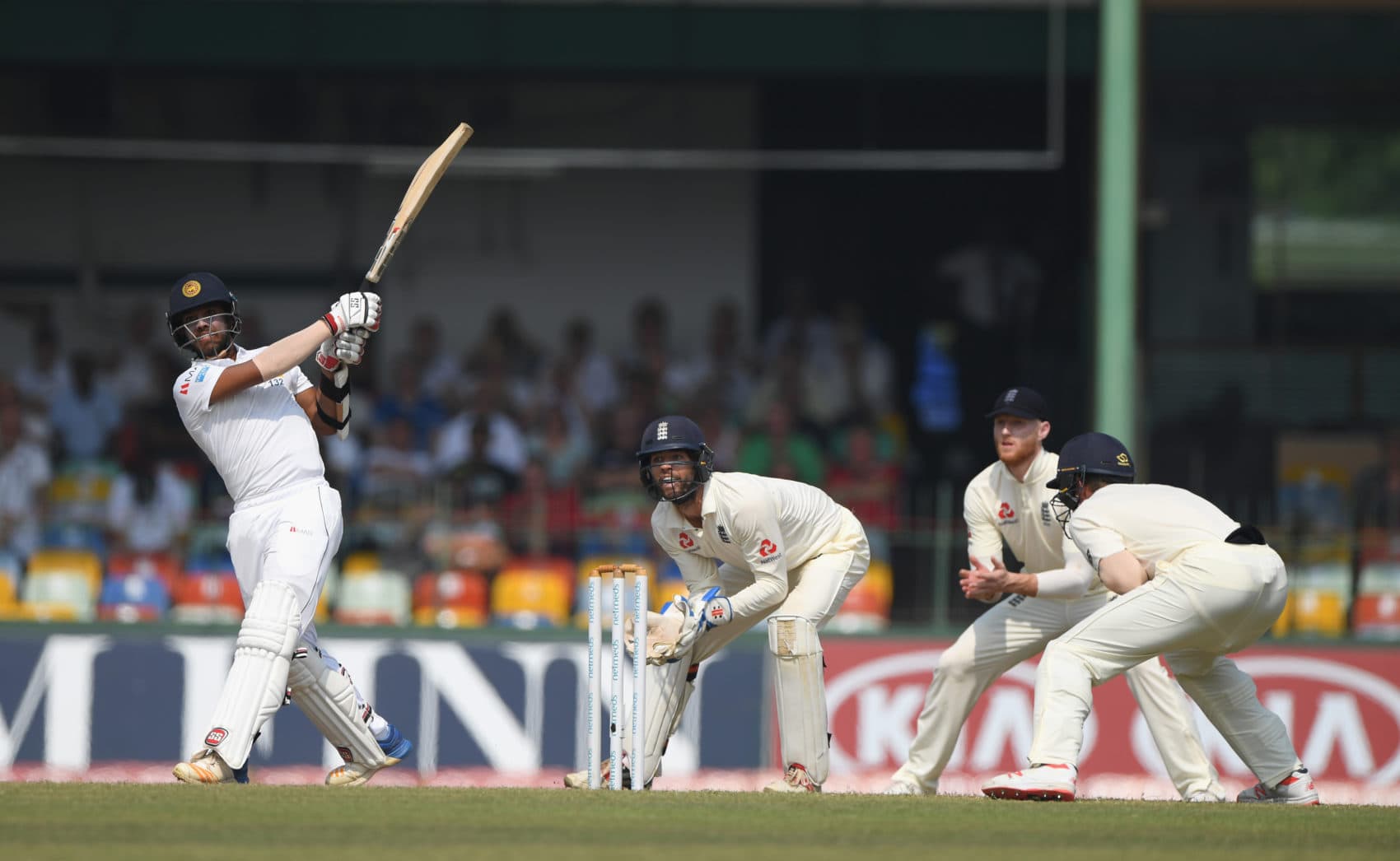
Chevy doesn’t remember the first time he played cricket.
"Probably as soon as I could carry a bat is probably when I played cricket," Chevy says. "Probably man-made as well. Not a store-bought bat."
Chevy says he still has the calluses he got on the cricket pitch as a kid.
"We take a bus to school, most of the time," Chevy remembers. "And there’s always a game going. So we play it before school starts. And then, we have a lunch break, which is, like, 45 minutes. And most of us bring sandwiches. We’ll probably finish eating before even lunch starts — and, you know, you’re running to the field to try and secure a spot to play cricket."
And when school ended, there was, of course ... more cricket. Chevy says, if not for cricket, he wouldn’t have been very interested in going to school.
"Cricket and our lives as kids were the same, you know?"
But in high school, things began to change.
Sri Lanka At War
It was 1983, and ethnic tensions in Sri Lanka were high. In the decades since independence from the British, the government had passed discriminatory laws favoring the Sinhalese majority over the Tamil minority.
By the 1980s, young Tamils were forming armed groups. They wanted their own separate state.
Chevy is Tamil. And as a teenage boy growing up in the dusty northern town of Jaffna, he was the perfect target for recruitment by the guerrillas.
"They would come into the schools and distribute pamphlets," Chevy says. "And you saw guns. And it wasn’t safe for you."
Chevy had to navigate a treacherous world: on one side there were the Tamil militias, and on the other, the military.
"You don’t have to be involved in anything," Chevy says. "Just the fact that you’re an 18-year-old boy was not a good thing."
In July of 1983, a young, militant group known as the Tamil Tigers attacked an army convoy. Almost immediately afterwards, massive retaliatory riots consumed Sri Lanka’s capital, Colombo.
Chevy’s brother was living there at the time — he’d call home to tell his family he was safe. Chevy says he waited in dread between those calls.
The riots went on for a week. By the end, Sinhalese mobs had killed an estimated 3,000 Tamil civilians and burned whole neighborhoods to the ground.
"That’s when I realized: I need to get out," Chevy says.
Chevy had already spent a year as an exchange student in upstate New York. He knew he needed to leave again. So he applied to the State University of New York in Fredonia — and got accepted. A family agreed to host him.
And as the ashes in Colombo were cooling, Chevy boarded a plane to the United States.
He had no idea how long he’d be away from home.
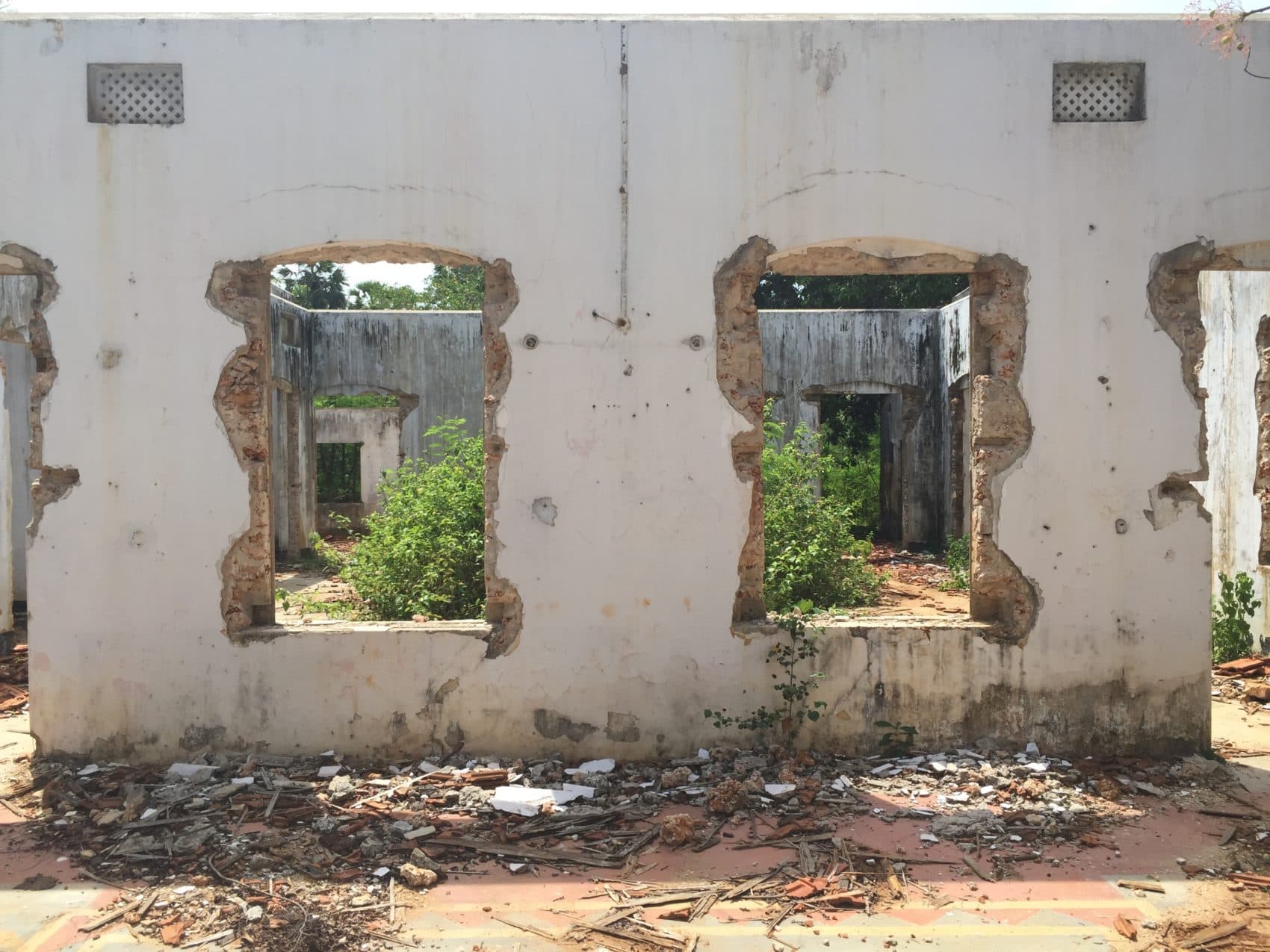
Leaving Home
"First time I arrived was in August, towards the end of August," Chevy remembers. "I was wearing jeans. I was wearing two T-shirts and a jean jacket. And I was cold. Must have been in the '70s."
The weather was different. The food was different. Gone were the chilis and cinnamon and cardamom of Sri Lankan curries. Instead, there was spaghetti and casserole.
"My first few weeks, I probably made my host mother very upset — because I needed hot sauce on everything she prepared," Chevy says. "I’m pretty sure she wasn’t very happy with that."
But what Chevy says he missed most was cricket.
“The talk about cricket and the games ... are still there ... It’s who we were.”
Chevy Vithiananthan
His new home in upstate New York was full of baseball diamonds and football fields. But no cricket pitches. To fill the void, he initially tried out for football — which is how he got his nickname.
"Back home they called me Chelvan," he says. "So when I came here, I went by Chelvan. But my first week or second week here, school starts. And I said, ‘I want to play football.’ So I went to go to football practice, and the coach asked me what my name was. And I said, ‘Chelvan.’ And he goes, ‘Chevy.’
"That was it. Since then, I’ve been Chevy."
Chevy stuck with football for just one season. But softball seemed like a better fit.
"The hardest thing was catching the ball with a mitt," Chevy says. "It just wasn’t natural. I’d play in the outfield, and when the ball comes in, I’d throw the mitt and catch the ball with my hands — because I was afraid the ball was gonna hit my head if I caught with a mitt. They all laughed. They thought I was crazy. But it was easier."
He eventually got the hang of it. But it still wasn’t cricket.
A New Life, Old Memories
Back home, the war raged on.
Years of conflict became decades. Chevy thought he’d never play his childhood game again.
And he didn’t for 30 years. In that time, he went to SUNY and then MIT and graduated with an engineering degree. He met his wife, and they had two children. He celebrated holidays with other Tamils in New England. He watched the Patriots on Sundays. And he felt far away from home.
Until one day, about six years ago ...
"One of the guys at one of the Tamil events said, ‘Hey, we play cricket on Sundays,’ " Chevy remembers. "And I said, ‘Oh — I’ll come out.’
"It felt foreign. I mean, I could not ... It took me almost 10 times — 10 days of playing cricket — before I could make contact with the bat and the ball. Because it’s … the whole softball motion or the baseball motion is different from cricket. And I just kept missing every ball."
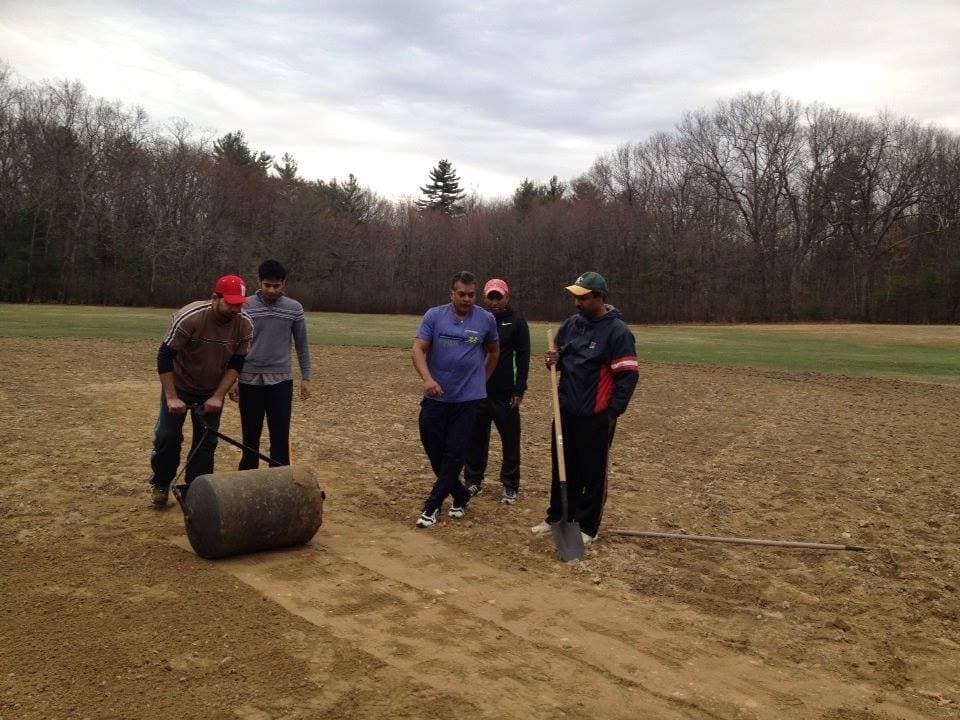
Sunday after Sunday, Chevy was out on the makeshift cricket pitch behind a school in his neighborhood. They’d play on a baseball diamond: one wicket at home plate and the other on second base.
Chevy started getting closer with the guys he played with. A few were his age who’d fled Sri Lanka at the beginning of the war. But there were many younger players as well — with much more recent memories of the homeland they’d fled.
"Even though, you know, our age differences, the stories are the same — the talk about cricket and the games," Chevy says. "The high school rivalries are still there. And we still have those rivalries here. It’s who we were."
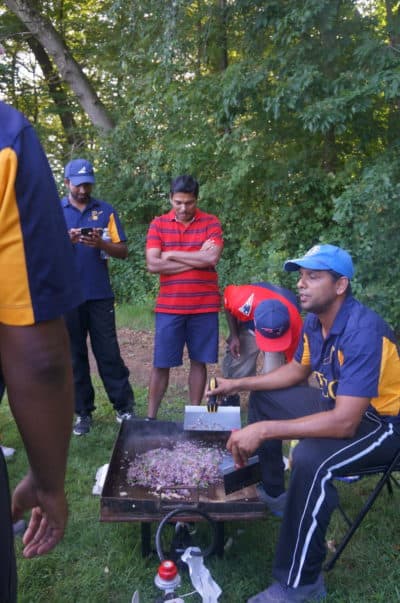
Chevy now plays in tournaments against teams from other Tamil expat communities up and down the East Coast.
"Saturday, early morning, the games start. And there’ll be breakfast served at the field. And it will be a good Sri Lankan meal. In Sri Lanka, everything revolves around food, as well. So lunch will be served, and it’s all home-cooked dishes."
The game, the meals, the people — they connect Chevy to his past.
Going Home
By the time Chevy started playing cricket again, the war had ended. For the first time, he began to think seriously of moving back home.
After the military left some of the former war zones, he visited Sri Lanka and returned to the house he grew up in.
"There’s bullet holes ... and, you know, windows missing ... and roof caved in ... and walls broken," Chevy says. "So it’s hard to come to grips with it, you know? Because that’s where you grew up. But it was what it was. People had it worse."
Chevy’s uncle’s house across the street was in similar shape. He fixed it up. He replaced the windows. He replaced the roof. He returned to New England and lobbied his wife to split their time: six months in the U.S., six months in the Sri Lanka.
"It’s home," Chevy says. "I don’t know how to describe it. It’s home."
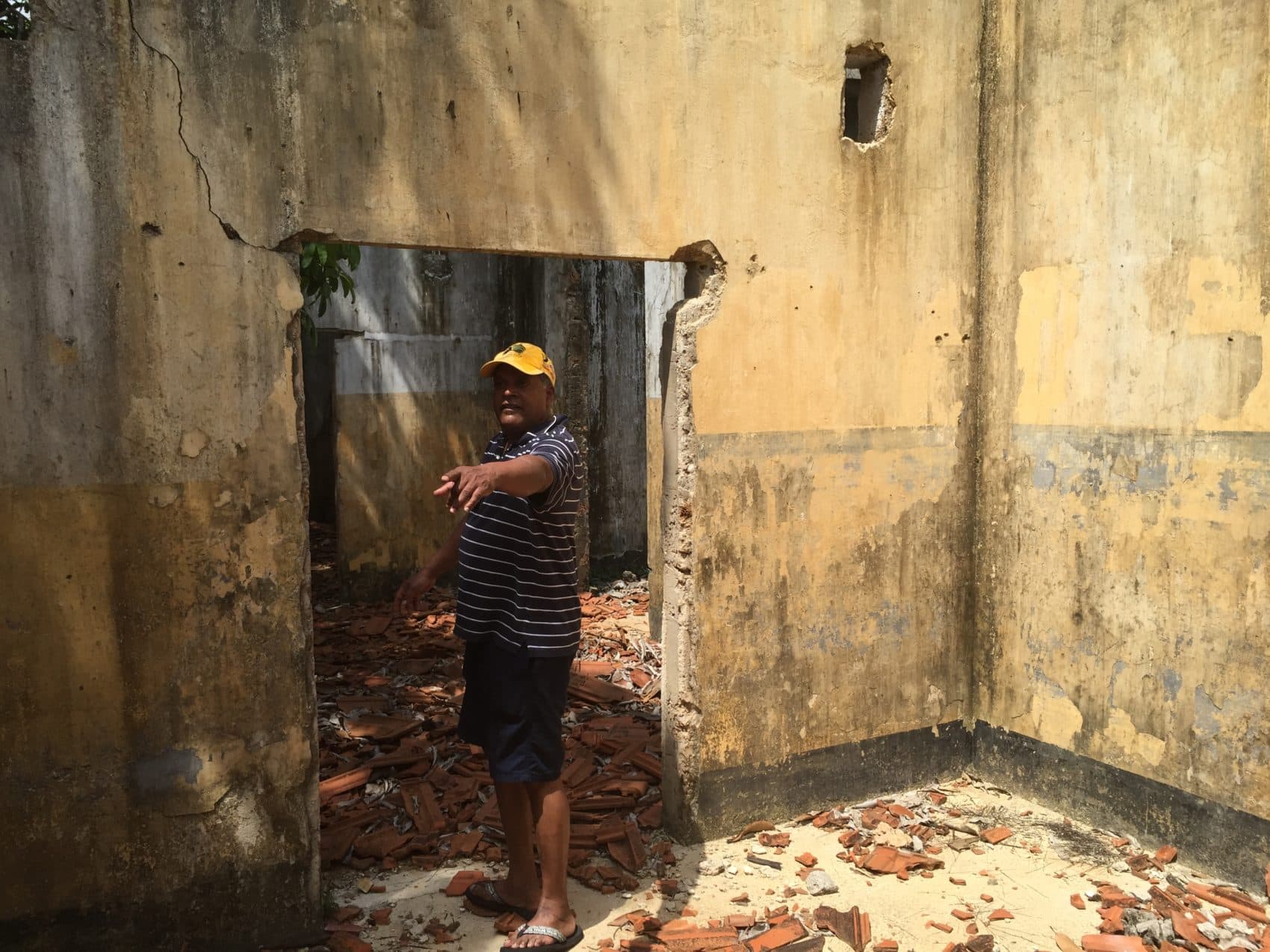
But three months ago, all those calculations changed again.
In October, the democratically-elected President very un-democratically fired his Prime Minister and appointed Mahinda Rajapaksa, the former president who is accused by the United Nations of presiding over massive war crimes against Tamils.
For Chevy, it means he doesn’t know if he can go back.
But, at least, he says, he now has cricket again.
I ask him how long he plans to keep playing.
"It's a good question," Chevy says. "As long as my body lets me."
This segment aired on December 15, 2018.
